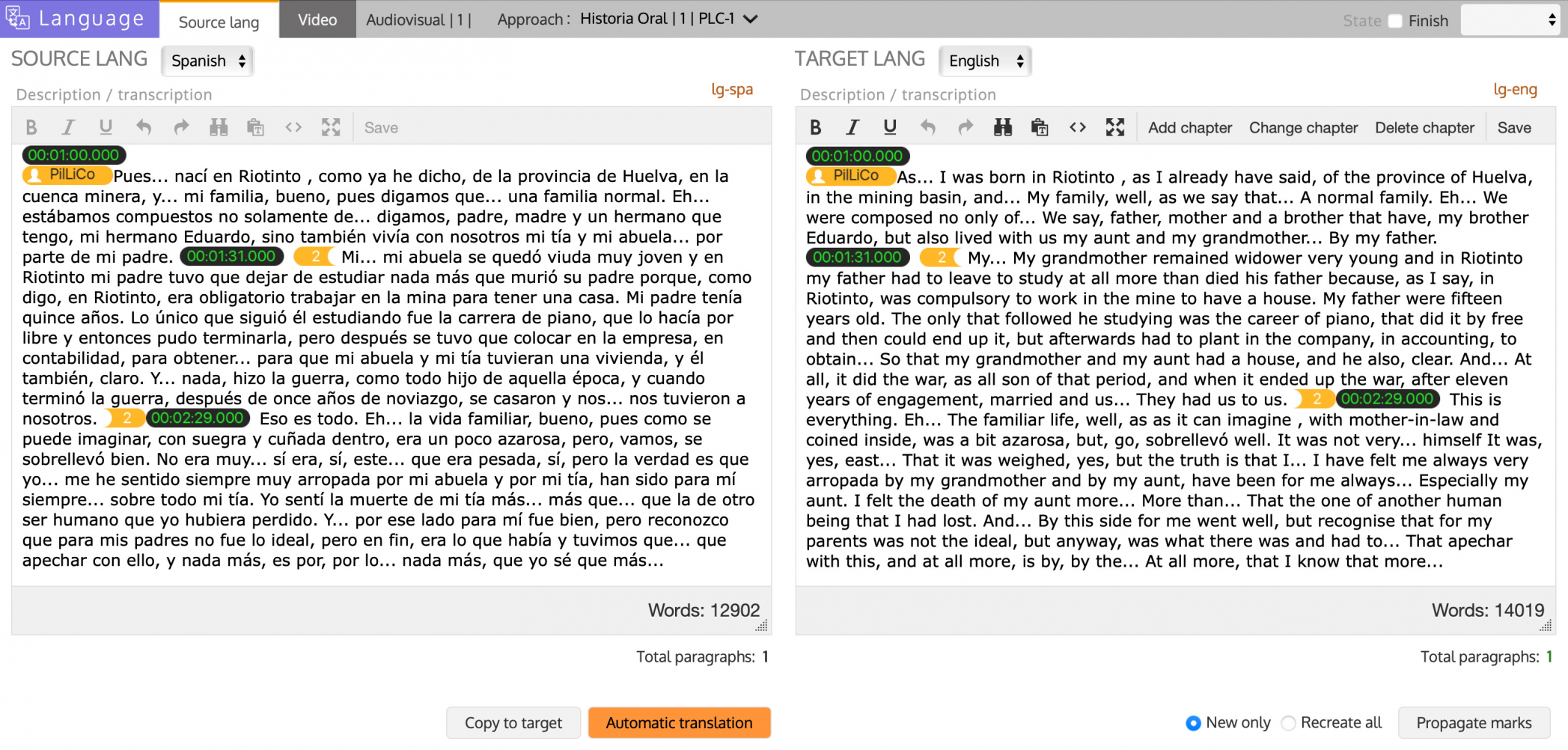
The indexing of an asset or interview is
always carried out in the original language in which the description / transcription has been made, once
the asset or interview is indexed it can be translated into other languages, in Dédalo the edition of
indexes with translation correspondence generates task that Daedalus performs automatically. When a
fragment is created, modified or deleted, the changes made are automatically propagated to the
translations dependent on the description / transcript field.
The translation of the content can be done in different ways: Automatic, semi-automatic and manual.
Dédalo can connect to any automatic translation tool. If you have contracted an on-line translation service (such google translation ...) you can carry out the translation with this service simply by pressing the "automatic translation" button, Dédalo will request the translation from the server and will re-place the Timecode and Indexing marks so that the translation would be consistent with the original.
Optionally you can carry out the translation manually by a professional translator. This option allows you to have a translation that is very faithful to the original. When you choose this option, you must bear in mind that the translation must have the same basic structure as the main language. For example, if a transcription has 3 questions and 3 answers, 6 paragraphs or carriage returns, the translation will necessarily have to have 3 questions, 3 answers, 6 paragraphs or carriage returns, it cannot have 7 or 5 paragraphs, since it is needed a structural coherence for the correct correlation of the timecode and index marks.
The translation of the content can be done in different ways: Automatic, semi-automatic and manual.
Dédalo can connect to any automatic translation tool. If you have contracted an on-line translation service (such google translation ...) you can carry out the translation with this service simply by pressing the "automatic translation" button, Dédalo will request the translation from the server and will re-place the Timecode and Indexing marks so that the translation would be consistent with the original.
Optionally you can carry out the translation manually by a professional translator. This option allows you to have a translation that is very faithful to the original. When you choose this option, you must bear in mind that the translation must have the same basic structure as the main language. For example, if a transcription has 3 questions and 3 answers, 6 paragraphs or carriage returns, the translation will necessarily have to have 3 questions, 3 answers, 6 paragraphs or carriage returns, it cannot have 7 or 5 paragraphs, since it is needed a structural coherence for the correct correlation of the timecode and index marks.
To use the machine translation tools, you will first need to configure the translation
API in the Dédalo configuration file.
